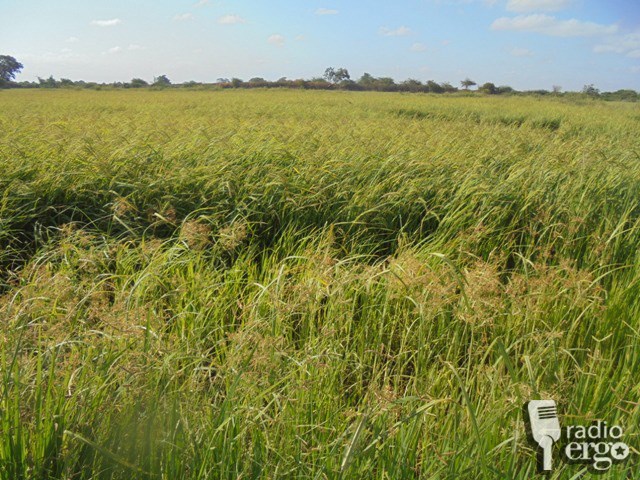
Friday March 26, 2021

Nur Magan Mahdi planted tomatoes, pumpkin, watermelons, and maize in early January on his farm in southern Somalia’s Hiran region, hoping to harvest in 45 days and recover from the losses he suffered last year due to river floods and locust infestations.
But aphids – tiny sap-sucking pests – began to attack his farm in February and by mid-March his crops had been ruined.
Nur, 65, has two hectares of land in Qanyahle, Bulaburde district, which supports the living of his family and 10 children. He had planted in January, the dry season, after taking a $180 loan and using water from the river Shabelle to irrigate the crops.
“I was hoping to repay the loan after the harvest, but now there is nothing to harvest,” Nur said dejectedly.
“I used a pesticide which I took from a local pharmacy on credit. The aphids reduced at first but came back in swarms a week later.”
His biggest worry is repaying his debts, which continue mounting. The family has been taking food on credit from local shops since October, accumulating a bill of $85.
He cannot risk taking another loan to plant yet again, having lost all his watermelons, sesame, maize and tomatoes between October and December, when the river Shabelle flooded many farms in the area and then the desert locusts invaded.
“I have children who depend on me for a living. I don’t know what to do next because the farm was my only source of income,” said Nur, who was banking on making $1,000 from the harvest destroyed by the aphids.
Bulaburde farmers’ cooperative committee told Radio Ergo that farms in more than 20 villages east and west of Bulaburde district had been destroyed by aphids, which spread from farm to farm with the wind.
Nur Mohamed Kulle, the vice-chair of the committee, said they had visited affected areas to gauge the scale of the damage. They provided farmers with 27 spray tanks but were not able to provide the pesticides.
“We informed Hirshabelle administration’s ministry of agriculture that the farmers needed immediate assistance, especially pesticides,” he said.
He warned that the pests could spread to other areas and cause further losses and hardship unless help reached the farmers.
Abdulle Omar Araye, a father of 20 children, had been spraying his three-hectare farm every two days to try to prevent the aphids from spreading beyond the portion they already destroyed. However, he said he was running out of the pesticide that he has not even paid for yet.
“The farm is my only source of income. I have planted $250 worth of crops, which is all based on loans,” he said.
A local organisation, Meeris, in collaboration with the Bulaburde administration, distributed some food aid to farmers in the area in December and January. Families received 75kgs of flour and rice and three litres of cooking oil, which helped them for a while but has been far from enough.